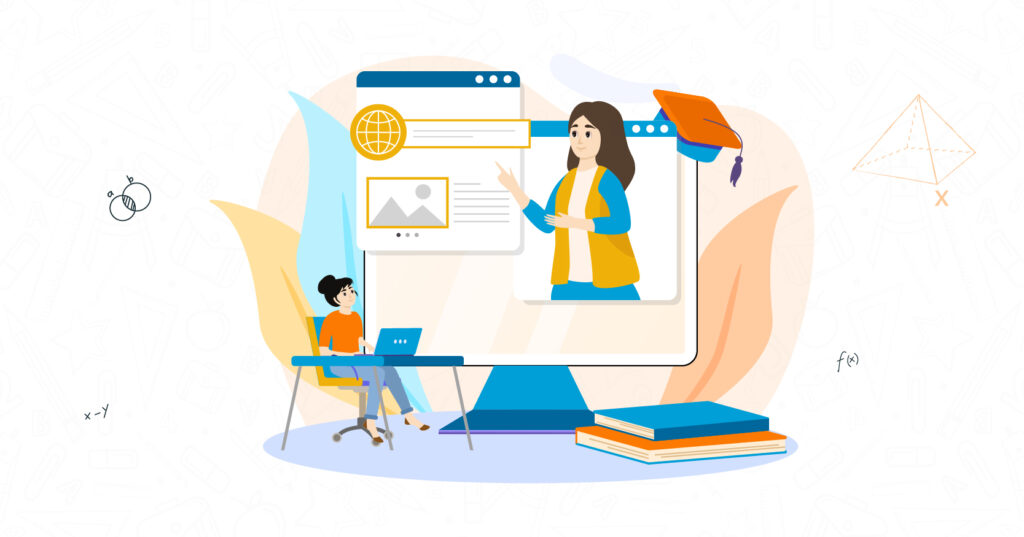LMS vs Online Learning Platforms: Why You Actually Need Both for Effective STEM Education

Introduction
In STEM education, precision matters. You’re not just delivering content—you’re shaping analytical thinkers and problem-solvers. And while your Learning Management System (LMS) keeps your course framework intact, it’s the Online Learning Platform that brings technical STEM concepts to life.
This distinction isn’t about choosing one over the other. It’s about realizing that an LMS and an online learning platform together form the backbone of an effective blended STEM classroom; the former organizes, while the latter energizes.
What is a Learning Management System?
An LMS acts as your digital course organizer. It is essential for keeping administrative tasks in check and ensuring students know where to access core materials.
Key capabilities of a Learning Management System include:
- Centralized Course Content Management: Upload, structure, and update all your course documents and multimedia resources in one place.
- Assignment Tracking and Gradebook Integration: Easily assign, collect, and grade student submissions while maintaining a clear overview of student progress.
- Student Communication and Notifications: Keep students informed through announcements, discussion boards, and direct messaging.
- Monitoring Participation and Attendance: Generate activity logs and insights on student logins, time spent, and interaction levels.
While these features are critical to course management, they fall short when it comes to delivering complex, high-engagement STEM content. For this, you need the advanced functionality of an online learning platform.
How Online Learning Platforms Enrich STEM Education
An online learning platform like Möbius goes beyond static content delivery. It’s designed specifically for the technical and conceptual rigor that STEM courses demand.
Let’s break down how it fills the critical gaps left by a traditional LMS:
1. Supporting Complex Math and Technical Content
Most LMSs are built to support basic question types—multiple choice, true/false, or short answers. But that’s not enough in STEM.
An online learning platform like Möbius offers:
- Symbolic math input and multi-step problem-solving
- Grading of intermediate steps, not just final answers
- Mathematical notation and custom functions for engineering and science problems
This is essential for educators aiming to deliver truly effective digital content for STEM education that mirrors the in-class problem-solving experience.
2. Algorithmic and Personalized Practice
Traditional LMS quizzes serve the same static set of questions to every student. This fails to reflect how real learning progresses through practice and iteration.
An intelligent online learning platform offers:
- Generate algorithmic question variations for each student
- Allow parameter-based problems that scale in difficulty
- Adapt content based on student performance
This model supports rethinking higher education where personalization isn’t a luxury—it’s a necessity.
3. Real-Time Feedback for Deeper Learning
Feedback after submission is useful, but feedback during problem-solving is transformative.
Online learning platforms like Möbius enable:
- Instant feedback on each step of a problem
- Hints, solution paths, and conceptual reinforcement
- Learning moments triggered exactly when a student makes an error
This kind of responsive interaction is key for elevating student engagement and preventing small misconceptions from snowballing.
4. Interactive and Visual Learning Tools
STEM topics often demand more than just reading or listening—they require experiencing.
Where an LMS is limited to static materials, online learning platforms include:
- Dynamic graphs, spreadsheets, and simulations
- Built-in interactive visualizations for simplifying complex topics
- Multimedia learning modules embedded within assessments
This makes it easier for students to grasp complex scientific or mathematical phenomena through exploration and experimentation.
5. Adaptive Learning Pathways
Configuring adaptive experiences in an LMS can be time-consuming and difficult.
Online learning platforms empowers STEM educators to:
- Automatically adjust the path based on student understanding
- Enable adaptive flows at the question, assessment, and course level
- Support remediation and progression without extra admin work
These features contribute directly to automating administrative tasks while enhancing student outcomes.
6. Better Data, Smarter Teaching
An LMS can give basic metrics—logins, clicks, or submissions. But that’s not enough to make informed decisions.
Online learning platforms provide:
- In-depth analytics on concept mastery
- Visualization of learning trends and at-risk students
- Actionable insights to tailor instruction
This depth of student analytics in education is vital for continuous improvement in STEM teaching.
Why a STEM Educator Need Both: A Unified Ecosystem
It’s not a question of LMS vs. online learning platform—it’s about combining both for a unified and effective teaching strategy.
Your LMS ensures:
- Structure, schedule, and centralized course logistics
- Grade tracking and content distribution
- Scalable communication with students
Your online learning platform ensures:
- High-quality STEM instruction through interactive problem-solving
- Personalization and adaptive learning
- Rich student data and real-time feedback
Together, they deliver a seamless and complete ecosystem that supports not just learning, but mastery.
Möbius: Your Online Learning Platform for STEM Success
At DigitalEd, we’ve built Möbius to integrate directly with your existing Learning Management System—Canvas, Moodle, Blackboard, and more.
It’s a platform made specifically for STEM education and enables:
- Rich digital assessments for math, science, and engineering
- Customizable and accessible learning environments
- Real-time feedback loops and automated grading
- Engagement tools that drive understanding, not just completion
If you’re ready to level up your digital STEM instruction, Möbius is the online learning platform designed for the future of teaching.
Final Thoughts
Teaching STEM effectively in today’s environment means making smart choices about your digital tools. Don’t limit your instruction to the functionality of a basic LMS. Enhance it with the interactivity, feedback, and insight that only an advanced online learning platform like Möbius can provide.
We’re not just talking about delivering content—we’re talking about transforming learning.
Book a personalized demo with our experts to learn more.